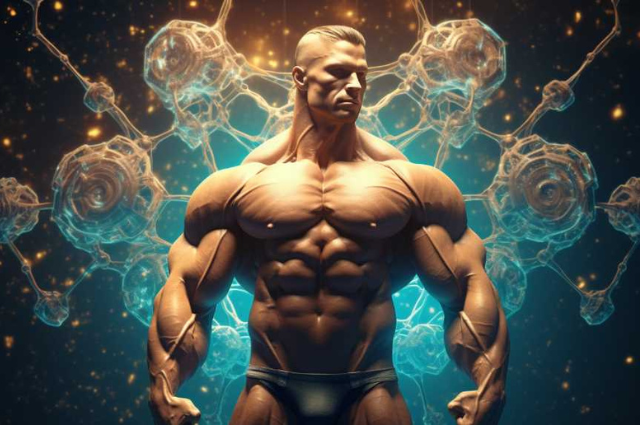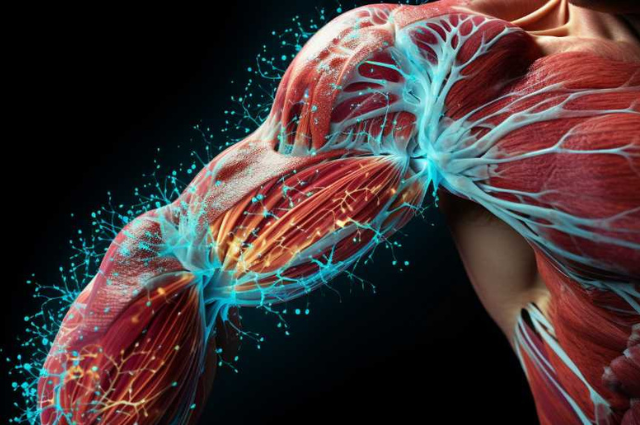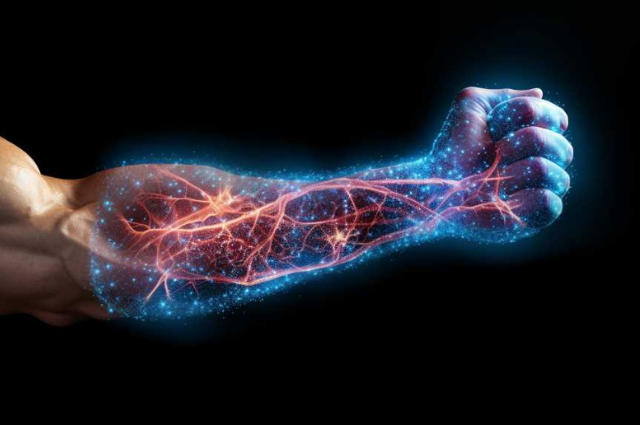Do Anabolic Steroids Cause Permanent Damage?
Anabolic steroids, synthetic substances akin to the male hormone testosterone, are often used by athletes and bodybuilders for performance enhancement. While their short-term effects may be beneficial, the long-term consequences can potentially be severe and irreversible.
This article seeks to explore the question: do anabolic steroids cause permanent damage? We will delve into the physical and mental impacts of these substances, discuss the possibility of reversing steroid-induced damage, and consider safe alternatives for those seeking enhanced athletic performance.
The objective is to provide a comprehensive understanding of the potential risks associated with anabolic steroid use.
Key Takeaways
- Anabolic steroids have immediate and powerful effects on the body, including muscle growth and performance enhancement.
- Steroid use can lead to a range of adverse effects, including liver damage, cardiovascular diseases, mood swings, and endocrine disorders.
- Steroids provide short-term gains in muscle mass, strength, and stamina, but users often overlook potential long-term damage to their health.
- Prolonged steroid use increases the risk of cardiovascular disease, liver damage, kidney disease, reproductive organ changes, and psychological disorders.
Understanding Anabolic Steroids
Anabolic steroids, a synthetic compound closely resembling the male sex hormone testosterone, have been widely used in the realm of sports and fitness for their ability to promote muscle growth and physical performance. The popularity of these substances can be attributed to their immediate and powerful effects on the human body, particularly in enhancing athletic capabilities.
However, the use of anabolic steroids is not without its drawbacks. Evidence-based research has consistently pointed to a range of health risks associated with their misuse. These substances function by binding to androgen receptors in cells, triggering a cascade of biological processes that lead to increased muscle mass. Yet, this complex interaction also disrupts normal hormonal balance, leading to a variety of adverse effects.
Scientific studies have shown that anabolic steroids can cause severe liver damage, cardiovascular diseases, mood swings, and endocrine disorders. In men, prolonged use can lead to testicular shrinkage, reduced sperm count, and baldness, while women may experience menstrual irregularities and development of masculine characteristics.
Moreover, the misuse of anabolic steroids has been linked to psychological dependencies, with withdrawal symptoms including depression, fatigue, restlessness, and insomnia. The correlation between steroid use and psychological disorders is a growing area of research, further highlighting the potential dangers of these substances.
The Appeal of Performance Enhancement
Despite the numerous health risks associated with anabolic steroids, a significant number of athletes and fitness enthusiasts are drawn to the immediate performance enhancements these substances provide. The allure of steroids lies in their ability to rapidly increase muscle mass, strength, recovery times, and stamina, thereby improving the overall athletic performance.
Scientific studies corroborate these effects. For instance, a research piece published in the Journal of Physiology demonstrated that anabolic steroids can significantly enhance muscle strength and growth. Another study in the Journal of Sports Science & Medicine revealed that these substances can reduce fatigue, enabling athletes to train harder and recover faster.
However, this superficial appeal masks a multitude of potential health issues. While users may see immediate gains, they frequently overlook the potential long-term damage to their cardiovascular, reproductive, and endocrine systems. Moreover, these substances can also have severe psychological effects, including aggressive behavior and mood disorders.
The quest for better performance and a competitive edge is a powerful motivator. However, the use of anabolic steroids for these purposes constitutes a form of cheating, as it undermines the principles of fair play and sportsmanship. Furthermore, it sets a dangerous precedent, particularly for young athletes who might feel compelled to use these substances to keep up with their peers or idols.
Short-Term Effects of Steroid Use
Turning to the short-term effects of steroid use, it is important to note that while the performance-enhancing gains can be rapid, the accompanying health complications can emerge just as swiftly. The misuse of anabolic steroids can lead to an array of adverse effects that can occur within weeks or months of usage.
One of the most immediate physical effects is water retention, leading to bloated appearance. This is due to an imbalance in electrolyte levels, which can also contribute to high blood pressure. Additionally, steroid use can induce severe acne as a result of overstimulated sebaceous glands.
Furthermore, steroid use can lead to psychological disturbances. Users might experience mood swings, aggressive behavior, and manic symptoms, often referred to as ''roid rage'. This is due to the alterations in neurotransmitter systems, with a significant impact on mental health.
In males, steroid use can cause testicular shrinkage and decrease in sperm production, leading to fertility issues. For females, the effects can be masculinizing, such as deepening of the voice, menstrual irregularities, and increased body hair. These effects are a result of hormonal imbalances caused by anabolic steroids.
In terms of cardiovascular health, steroids can increase LDL (bad cholesterol) levels and decrease HDL (good cholesterol) levels, leading to an increased risk of heart disease. Liver damage, including the potential for tumors, is also a significant risk.
These short-term effects highlight the serious health risks associated with anabolic steroid use. Even in the absence of long-term damage, these immediate effects can significantly impair a person's quality of life and overall health.
Unpacking Long-Term Steroid Consequences
In assessing the long-term consequences of anabolic steroid use, it is crucial to consider the potential for irreversible damage and its profound impact on an individual's health and wellbeing. Anabolic steroids, synthetic variants of the male sex hormone testosterone, are often used illicitly by athletes and bodybuilders to enhance performance and physique. However, their long-term use has been associated with a range of serious health complications.
Medical literature has cited cardiovascular disease as a major health risk associated with prolonged steroid use. Steroids can increase low-density lipoprotein (LDL) cholesterol, the 'bad' cholesterol, and decrease high-density lipoprotein (HDL), the 'good' cholesterol. This alteration in lipid profile can lead to atherosclerosis, a condition characterized by the hardening and narrowing of arteries, increasing the risk for heart attack and stroke.
Furthermore, prolonged use of anabolic steroids can result in severe liver damage, including liver tumors and a rare condition called peliosis hepatis, wherein blood-filled cysts form in the liver. Steroids can also cause kidney disease, due to the increased workload on the renal system caused by the body's attempt to eliminate the surplus hormones.
In men, long-term use can lead to testicular shrinkage, reduced sperm count, infertility, baldness, and the development of breasts. Women may experience male-pattern baldness, changes in menstrual cycle, and a deepened voice.
Permanent Damage: Fact or Fiction
The ongoing debate's crux lies in discerning whether the health damage from anabolic steroid use is indeed irreversible, or if this is merely conjecture. It is crucial to approach this subject with an unerring commitment to scientific evidence and rigorous analysis.
Scientific studies suggest that prolonged anabolic steroid use can indeed have lasting effects on the body. For instance, a study published in the Journal of Internal Medicine in 2017 found that men who misuse anabolic steroids have a significantly higher risk of early death compared to non-users. Another study in the Archives of General Psychiatry reported that steroid use can lead to long-term psychiatric effects, including dependence syndromes and mood disorders.
Also, extensive research has demonstrated that steroids can cause lasting damage to the cardiovascular system. A 2016 study in the journal Circulation showed that anabolic steroid use is associated with arterial damage and an increased risk of heart disease. Long-term steroid use can also cause irreversible damage to the liver, according to a 2014 study in the Journal of Hepatology.
However, it is worth noting that much of the research on this topic involves heavy, chronic steroid users. Therefore, the extent to which occasional or short-term use can cause permanent damage remains a subject of ongoing research. Indeed, the boundary between reversible and irreversible damage is not always clear-cut and may depend on a variety of factors, including the individual's genetic makeup, the type and amount of steroids used, and the duration of use.
Thus, while the evidence suggests that anabolic steroids can cause lasting damage, more research is needed to fully understand the extent of this damage and the specific conditions under which it occurs.
The Mental Impact of Steroids
Beyond the physical harm, a significant yet often overlooked aspect of anabolic steroid use is its profound impact on mental health. Steroid abuse has been evidenced to cause a range of psychological effects, from mild mood swings to severe psychiatric disorders.
The use of these performance-enhancing drugs often results in dramatic shifts in mood, with users experiencing periods of euphoria, invincibility and aggression, commonly referred to as 'roid rage'.
The link between steroids and mental health disorders has been established through multiple scientific studies. A study published in the Journal of Clinical Psychiatry found that anabolic steroid users were more likely to have been diagnosed with a psychiatric disorder and to report significant levels of anxiety and depression. Interestingly, the severity of these mental health issues was directly correlated with the dosage and duration of steroid use.
Moreover, anabolic steroid use has been associated with a higher risk of substance abuse. The National Institute on Drug Abuse reports that steroid users are more likely to misuse other substances, such as alcohol and opioids, in an attempt to self-medicate the negative psychological effects of steroids.
The mental impact of anabolic steroids is a serious concern that extends beyond the user. The aggressive behavior often exhibited by users can lead to domestic violence and other criminal activities.
Reversing Steroid-Induced Damage
Several strategies exist to potentially reverse the physical and mental damage induced by anabolic steroids, though their effectiveness can vary greatly depending on the individual's specific circumstances and the duration and intensity of steroid use.
Medical intervention is often required to manage the immediate health risks of steroid abuse, such as liver damage, heart disease, and psychological disorders. This may involve pharmacological treatments, psychotherapy, and lifestyle modifications.
Pharmacological treatments can manage symptoms and restore the hormonal balance disrupted by steroid use. For men, this often involves administering testosterone to counteract the suppression caused by anabolic steroids. For women, hormonal therapies to counteract masculinization may be used. However, these treatments are not without risks and side effects, and their efficacy in reversing damage is still under investigation.
Psychotherapy can address the psychological impacts of steroid abuse, including mood disorders, body image issues, and dependency. Cognitive-behavioral therapy has shown promise in helping individuals alter their attitudes and behaviors related to steroid use.
Lifestyle modifications, such as improved diet, regular exercise, and abstinence from steroid use, can help the body heal over time. However, some damage, particularly to the cardiovascular system and liver, may be irreversible.
Lastly, early intervention is crucial, as prolonged abuse of anabolic steroids can lead to permanent damage. Research emphasizes the importance of education and prevention to curb steroid use before it leads to serious harm. Nevertheless, the potential for reversing steroid-induced damage is an active area of scientific inquiry, and further research is needed to develop effective strategies.
Steroid Alternatives for Athletes
While anabolic steroids provide performance-enhancing benefits, athletes seeking healthier, legal alternatives have a variety of options to consider. Natural supplements, careful dietary planning, and disciplined training regimens can all contribute to improved athletic performance without the adverse side effects associated with steroid use.
One popular alternative is the use of creatine, a naturally occurring compound that helps supply energy to cells throughout the body, particularly muscle cells. Research has shown that creatine supplementation can increase muscle creatine and phosphocreatine by up to 40%, enhancing the body's capacity for high-intensity exercise and strength training. Creatine is readily available, legal, and generally safe for consumption, making it an attractive option for athletes.
Another option is the use of branched-chain amino acids (BCAAs), which are essential nutrients that the body obtains from proteins found in food, especially meat, dairy products, and legumes. They include leucine, isoleucine, and valine. Regular BCAA supplementation can promote muscle growth and recovery, enhance exercise performance, and reduce muscle fatigue.
In addition to these, adopting a protein-rich diet can provide the body with the necessary ingredients for muscle growth and repair. Combined with a structured and rigorous exercise regimen, this can foster significant improvements in physical performance.
However, it's worth noting that while these alternatives can provide performance-enhancing benefits, they do not offer the immediate, dramatic results often associated with anabolic steroids. Athletes must be patient, consistent, and disciplined in their training and dietary practices to see gradual, sustainable improvements. Above all, health and safety should be paramount considerations in the pursuit of athletic excellence.
Frequently Asked Questions
Can Anabolic Steroids Cause Infertility in Males and Females?
Yes, anabolic steroids can potentially lead to infertility in both males and females.
In males, steroids can decrease sperm production, shrink the testicles, and cause erectile dysfunction.
In females, they can disrupt the menstrual cycle and cause anovulation, leading to difficulty conceiving.
These effects can be permanent or reversible, depending on the duration and intensity of steroid use.
Always consult a healthcare professional before starting any steroid regimen.
Are There Any Legal Consequences Associated With the Use of Anabolic Steroids?
Yes, there can be legal consequences associated with the use of anabolic steroids depending on the jurisdiction. In many countries, including the United States, anabolic steroids are classified as a controlled substance.
Possession or sale without a valid prescription can lead to legal penalties including fines and imprisonment. The severity of these penalties varies by country and state, reflecting differing views on the seriousness of steroid abuse.
What Is the Prevalence Rate of Anabolic Steroid Use Among Teenagers?
The prevalence of anabolic steroid use among teenagers varies greatly depending on the region and the survey method used.
However, research indicates that an estimated 2.9-4% of 12th grade males and 1.2% of females have used anabolic steroids at least once.
This prevalence appears to be increasing, highlighting the need for effective interventions to prevent the use of these potentially harmful substances.
Can Anabolic Steroids Cause Any Alterations in Physical Appearance?
Yes, anabolic steroids can cause significant alterations in physical appearance. Prolonged use can lead to masculinization in women, including deepening of the voice and facial hair growth.
In men, it can cause gynecomastia (breast enlargement), baldness, and skin conditions like acne. These changes can be irreversible, even after discontinuation of steroid use.
It's crucial to understand these potential risks before considering anabolic steroid usage.
Are There Any Specific Initiatives or Programs Aimed at Educating Athletes About the Dangers of Anabolic Steroids?
Yes, numerous initiatives and programs aim to educate athletes about the potential dangers of anabolic steroids.
These include the National Institute on Drug Abuse's (NIDA) 'Steroids and Other Appearance and Performance Enhancing Drugs (APEDs)' initiative and the United States Anti-Doping Agency's (USADA) educational programs.
Both provide extensive resources and information to athletes, coaches, and parents about the risks associated with steroid use, including health complications and potential legal consequences.
Conclusion
In summary, anabolic steroids, while alluring for their performance-enhancing capabilities, pose significant short and long-term health risks. Evidence suggests that continued usage can lead to irreversible physical and mental damage.
However, the severity of these outcomes can be mitigated if steroid use is discontinued. Emphasizing safer alternatives and educating athletes about the potential risks associated with steroid use is pivotal in safeguarding their overall health and wellbeing.







